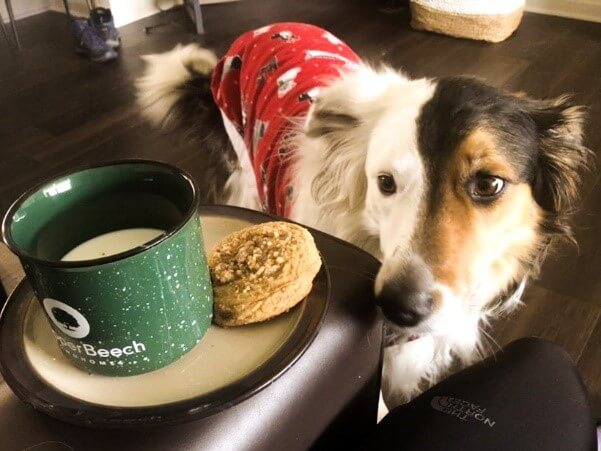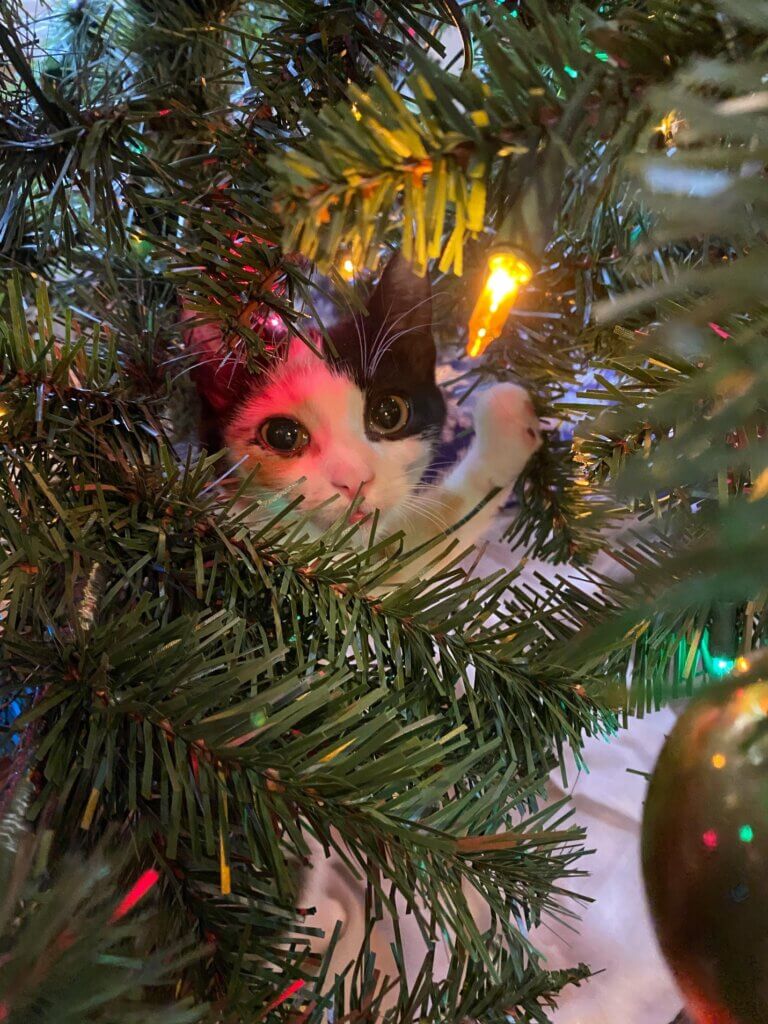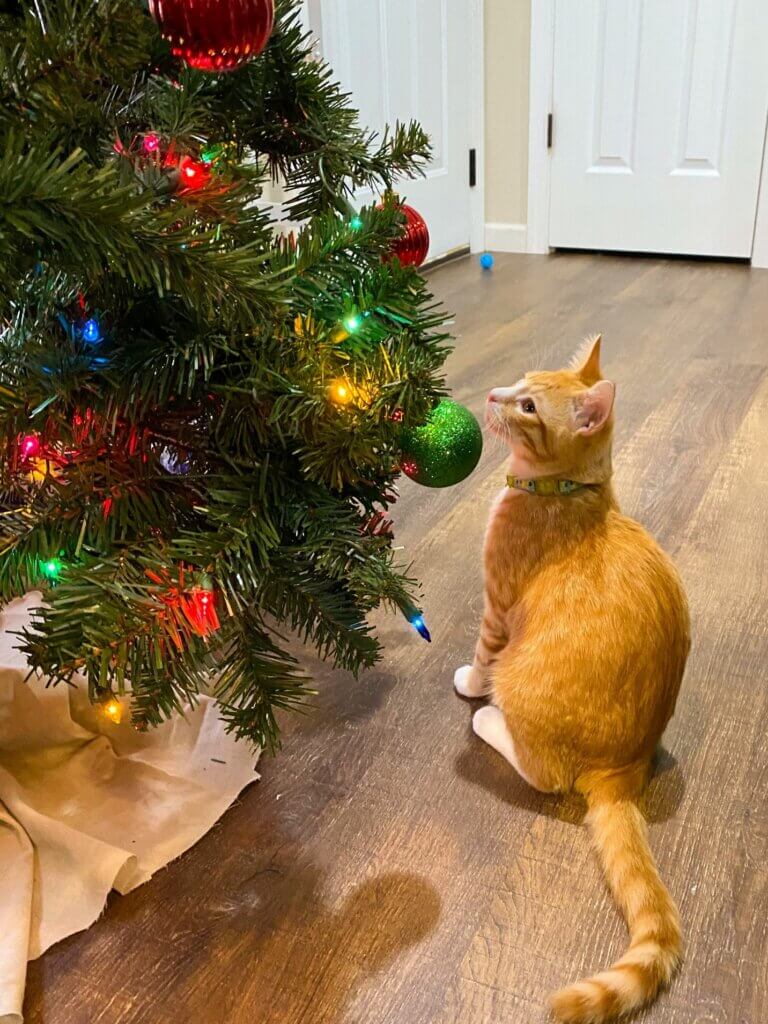
Holiday Tips for Pet Health from the Purdue University College of Veterinary Medicine
The phrase “Happy Holidays” should remind us as pet owners that we have some special responsibilities during this season of the year to keep the holidays safe for our animal companions. And in 2020, that means being prepared to take some extra precautions because of the COVID-19 pandemic.
Dr. Lorraine Corriveau, wellness clinician in Small Animal Primary Care at the Purdue University Veterinary Hospital, said currently there is no major evidence to suggest animals play a significant role in spreading SARS-CoV-2, the virus that leads to COVID-19 in people. But she emphasized more studies are needed to understand if and how different animals could be affected by COVID-19.
“Based on the limited information available to date, the risk of animals spreading COVID-19 to people is considered to be low,” Dr. Corriveau said. “But it appears that it can spread from people to animals in some situations. So, people with suspected or confirmed COVID-19 should avoid contact with animals, including pets, livestock, and wildlife.”

Dr. Corriveau further advised that people with COVID-19 who are quarantining should take the same precautions with household animals as they would with other members of their homes. “Specifically, while a person with COVID-19 is symptomatic, they should maintain separation from household animals, and avoid direct contact with pets, including petting, snuggling, being kissed or licked, sleeping in the same location, and sharing food or bedding,” Dr. Corriveau said. “If possible, another household member should be designated to care for pets in the home and should follow standard handwashing practices before and after interacting with the household animal.” She added, if a person with COVID-19 must care for pets or other animals, they should wash their hands thoroughly before and after contact is made with them.
At the same time, pet owners should be mindful of more traditional risks to animals during the holidays. Even with smaller holiday gatherings of just family being the norm this year due to the pandemic, pets face a variety of health threats related to holiday traditions ranging from decorations to food. Dr. Corriveau suggests the following check list for holiday pet safety:
Chocolate consumption is very dangerous to pets especially dogs. Chocolate contains a chemical called theobromine which can be fatal to dogs if they consume too much of it. Since dogs themselves are not aware of this be sure to keep your guard up, like a guard dog.

Tinsel may be appealing to cats, but it can cause the intestines to bunch up and even can cut through the intestinal wall! Either could be fatal, and would certainly mean a trip to the veterinarian’s office.
Electric cords may seem like a fun chew toy to puppies and kitties, and put animals at risk of serious burns and electric shocks.
Ornaments can fascinate pets, and they do not understand words like “breakable,” “family heirloom,” or “sentimental value.” Rambunctious dogs, cats, and ferrets have been known to topple many an ornament and knick-knack, and sometimes even whole Christmas trees.
Candles may pique the interest of pets with their dancing flames, and that may lead to a pet toppling one over or even being set on fire.
Decorative plants like Holly, Ivy and Mistletoe can appear as vegetables to pets, but these can be poisonous if swallowed. For a full list of toxic plants, you can check with the ASPCA Animal Poison Control website at aspca.org/pet-care/animal-poison-control. If you have an emergency, you can call the Animal Poison Control hotline at: 1-888-426-4435.
Overeating is not uncommon this time of year, for humans and pets alike. Table scraps, garbage raiding, and counter surfing can lead to much richer food in your pet’s stomach than usual, which can cause digestion problems and even serious inflammation of the pancreas that can be life-threatening. Help your pets stick to their normal diet – even if they plead with you not to.
Noisemakers can be fun for humans this time of year, especially on New Year’s Eve, but pets may be sensitive to them. Make sure to keep your furry friends in mind If you anticipate that some fireworks or noisemakers will be within earshot of your pets, be certain they are in a safe place away from the noise. Also, be sure that your pet isn’t able to escape the house or yard.
New Pets are often welcomed around this time of year, but the holidays are a bright, noisy and exciting time of year, which can be a little overwhelming for new members of the household, especially younger animals. Dr. Corriveau recommends waiting until after the holidays are over to get a new pet so you can introduce your new pet into a quiet, safe environment.
If a pet does get sick or injured during the holidays, the Purdue University Veterinary Hospital‘s Emergency Service is available 24/7. For emergencies, call or text 765-494-1107.
